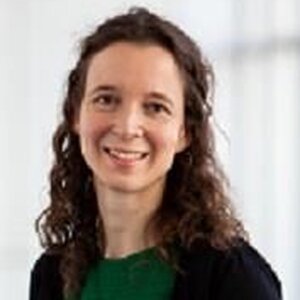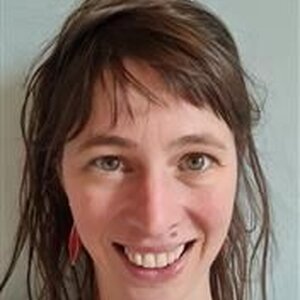Thousands of migrants in Brussels live in a situation of precarious citizenship. This leads to an impasse for these people themselves, but also for the Brussels government, which has to engage in permanent crisis management.
In ATLAS, we analyse this 'crisis' in Brussels together with all actors involved, including people with precarious citizenship themselves. We develop different scenarios to arrive at a different kind of citizenship, ensuring the right to shelter and services for all.
ATLAS of housing scenarios
Today Brussels, like many other global cities, faces a double socio-technical lock-in in the field of asylum and migration:
- a large and variegated group of up to 100.000 people is literally socio-spatially locked-in in the capital without clear future perspectives nor legitimate means of movement due to their precarious citizenship;
- at the same time, due to the effects of national migration governance, the Brussels government is not able to act beyond mere crisis-management as migration and asylum are national competencies.
This double lock-in combined with the deep political sensitivities around migration tend to result in a paralyzing effect, leading cities like Brussels to face “a crisis of imagination”.
ATLAS (Access To sheLter And Social infrastructure) endeavors to open up this multi-layered crisis by exploring, mapping out and designing in detail how a multi-scalar urban government like Brussels could, via the building and providing of housing and social infrastructure, rewrite the precarious citizenship of an increasing number of people in its city.
Brussels-based co-creation lab
Three years of intensive fieldwork in Brussels into the often hidden ‘infrastructuring work’ of a multitude of actors in this domain will lead to an ATLAS of scenarios in which diverse forms of provisioning housing and social infrastructure can rewrite the precarious citizenship of people.
The ATLAS-team of anthropologists, architects, urban planners, geographers and social workers (supported by a think-tank of local and international experts) will co-produce fine-grained, yet open-ended scenarios with a variety of local and international stakeholders in a multi-disciplinary and Brussels-based co-creation lab.
The resulting ATLAS will be exhibited in a number of Brussels’ public centres and will be made available online in order to boost the urgently required dialogue and rewriting of precarious citizenship in Brussels.

Partners in dit project
KU Leuven:
- Departement Sociale & Culturele Antropologie
- Departement Architectuur – Urban Design, Urbanism, Landscape & Planning (UULP)
- KU Leuven Urban Studies Institute (LUSI)
Met de steun van: Brussels Hoofdstedelijk Gewest – Innoviris
Contact the researchers
In the project "RISE" - Reinforcing Integration through Sponsorship Enhancement - we respond to the housing needs of beneficiaries of international protection in Belgium, Italy and Lithuania. We do this through the alignment, development and implementation of Community Sponsorship programmes.
Based on literature research on existing knowledge, best practices and experiences in Europe, we conduct field research in the countries concerned. We then carry out pilot projects and design toolkits.
Providing extra housing thanks to 'Community Sponsorship'
In the project "RISE" - Reinforcing Integration through Sponsorship Enhancement - we respond to the housing needs of beneficiaries of international protection in Belgium, Italy and Lithuania.
We will explore the possibilities of 'Community Sponsorship' in Belgium, Italy and Lithuania.
On 15 and 16 May 2024, migration experts from Italy, Lithuania and Belgium met in Brussels for the official kick-off of the project.
In 2022, 881,220 people applied for international protection in the EU for the first time. This is the highest number since the peaks of 2015 and 2016. Moreover, around 4 million people who fled Ukraine after the Russian invasion received temporary protection in the EU.
This led to significant pressure on member states' reception systems and, in particular, on housing availability. Yet accessibility to housing is crucial for integration and inclusion.
It is in this context that 'Community Sponsorship' is seen as a way to increase the number of resettlement places while promoting integration. Countries like Canada, Australia, the UK and the US already have successful experiences with Community Sponsorship.
In Europe, this programme is relatively recently developed. In this project, we want to explore the possibilities of Community Sponsorship in Belgium, Italy and Lithuania.
Our objectives:
- To enhance knowledge about existing Community Sponsorship programmes and contribute to the implementation of innovative housing solutions.
- To increase the availability of and access to housing opportunities.
- To increase the number of Member States implementing Community Sponsorship focused on housing solutions.
- To promote transnational exchange and share lessons learned.

Partners in dit project
Partners:
- International Organization for Migration (Coördinator)
- Pabegeliu Priemimo Centras (Litouwen)
- Universita Degli Studi Roma Tre (Italië)
- Odisee (België)
Associates:
- Ministry of Social Security and Labour of the Republic of Lithuania (Litouwen)
- Lietuvos Savivaldybiu Asociacija (Litouwen)
- Vsi Stiprus Kartu (Litouwen)
- Vilniaus Arkivyskupijos Caritas (Litouwen)
- Pabegeliu Taryba (Litouwen)
- Federal Agency for the Reception of Asylum Seekers Fedasil (België)








